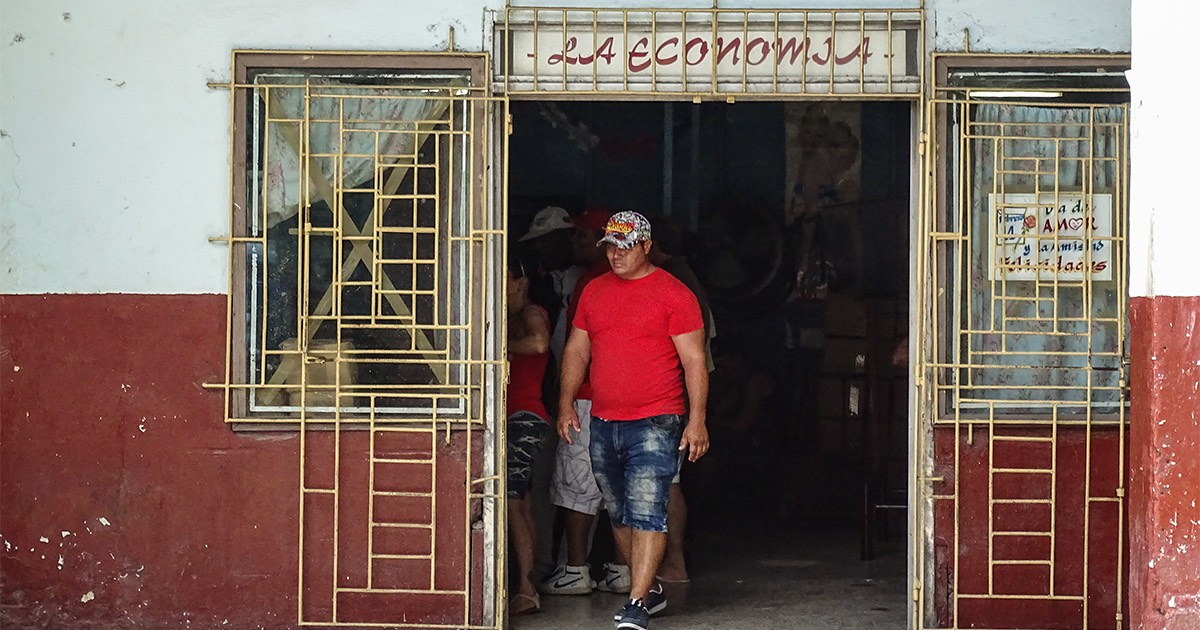Cuban Minister of Economy, Joaquín Alonso Vázquez, confirmed on Monday that the nation's economy shrank by nearly 2% (1.9%) at the end of 2023, despite government forecasts of a 3% growth. Unfortunately, the outlook for this year remains bleak.
According to Cubadebate, Alonso Vázquez explained to the Economic Affairs Committee of the National Assembly that this year continues to face a "complex scenario" marked by a high fiscal deficit and "monetary emissions above recommended levels." This is similar to the previous year, which forced the government to admit last December that their growth forecasts were overly optimistic. However, they never acknowledged a GDP decline, instead discussing "stagnation."
The minister didn't reveal anything new in his parliamentary address, where he spoke about "insufficient" foreign currency income and low national production recovery. Adding to these woes are "fuel and energy limitations," "persistent high inflation," and "significant external debt."
For clarity, Cuba is burdened with debt, scarcity, and an oversupply of money, compounded by the government's inability to control the exchange rate, thereby failing to curb inflation. As of May, inflation had surged by 31% year-on-year, according to Deputy Minister of Finance and Prices, Lourdes Rodríguez Ruiz, in a recent meeting with representatives of SMEs. She announced the government's decision to cap prices on six basic consumer products: chicken, soybean oil, detergent, sausages, pasta, and powdered milk. On inflation, the minister noted that while it shows signs of slowing down in 2023, it remains around 30%, meaning prices are still rising, albeit at a slower pace.
In Communist Party jargon, Alonso Vázquez pointed out that there are currently "insufficient productive linkages among economic actors," indicating a disconnect between state enterprises and the private sector.
Among the bad news presented to the National Assembly by the Ministry of Economy is the failure to meet revenue targets, although it claims to have surpassed last year's income. This year, $222 billion USD in revenue was missed, but compared to 2023, $249 billion more was earned. Cubadebate does not explain the target, making it unclear how far the actual revenue fell short of expectations.
Positive Trends in Medical Services Exports
According to the economy minister, there has been a "favorable" trend in the export of medical services, tobacco, charcoal, eel, lobster, and biopharmaceutical products. However, expected revenues were not achieved in the export of nickel, sugar, rum, honey, shrimp, tourism services, and telecommunications. Additionally, "poor management" in collecting international invoices has resulted in a 6.4% delinquency rate in the first half of this year.
Essentially, Cuba's tourism industry has not rebounded. Although tourist arrivals have slightly increased (1.8%) this year compared to 2023, the country is still at half (51.6%) of pre-pandemic levels from 2019. The main sources of visitors are Canada, Russia, Cuban residents abroad, and Germany, in that order.
Regarding imports, only 58% have been met, despite prioritizing the purchase of food, medicine, fuel, and medical supplies, which remain insufficient given the food shortages and poor healthcare conditions in Cuba.
An interesting detail provided by the minister is that private sector imports amounted to $900 billion, with the majority ($622 billion) from SMEs. Surprisingly, only 12 new foreign investment projects were approved in the entire semester, a modest figure in a globalized world and an untapped market like Cuba. Of these, only one project went to the Mariel Special Development Zone, which was supposed to be the country's major investment hub.
As visible on the streets, the minister confirmed that most agricultural production targets have not been met due to the lack of fertilizers, pesticides, fungicides, fuels, and animal feed.
Risks and Challenges of the Electrical System
Minister Joaquín Alonso Vázquez also highlighted what no one wants to hear on the streets of Cuba: the national electrical system faces "risks and challenges" due to a fuel shortage. This translates to more frequent blackouts, with the only proposed solutions being the construction of 2,000 MW of solar energy and maintenance of thermoelectric plants, although Cubadebate did not provide further details.
Ulises Guilarte de Nacimiento, leader of the Cuban Workers' Central, warned that the second half of the year will be "complex" and noted that state enterprises in key sectors such as agriculture, sugar, and food industries are still running at a loss.
Overall, the debate focused on well-known issues: severe food and fuel shortages, without proposing solutions. There were, however, some curious remarks, such as Jorge Luis Broche Lorenzo, a member of the Communist Party's Central Committee, who spoke about "excessive payments" from the state to the private sector.
FAQs About Cuba's Economic Decline
Here are some frequently asked questions and answers about Cuba's current economic situation, focusing on key issues and challenges.
Why did Cuba's economy decline by nearly 2% in 2023?
The decline is attributed to a high fiscal deficit, excessive monetary emissions, insufficient foreign currency income, low national production recovery, fuel and energy limitations, persistent high inflation, and significant external debt.
What measures has the Cuban government taken to address inflation?
The government decided to cap prices on six basic consumer products: chicken, soybean oil, detergent, sausages, pasta, and powdered milk. However, inflation remains around 30%.
How is Cuba's tourism industry performing?
Tourist arrivals have increased by 1.8% this year compared to 2023, but the numbers are still only half of the pre-pandemic levels from 2019.
What are the main challenges facing Cuba's electrical system?
The electrical system faces risks and challenges due to a fuel shortage, leading to frequent blackouts. Proposed solutions include the construction of 2,000 MW of solar energy and maintenance of thermoelectric plants.
